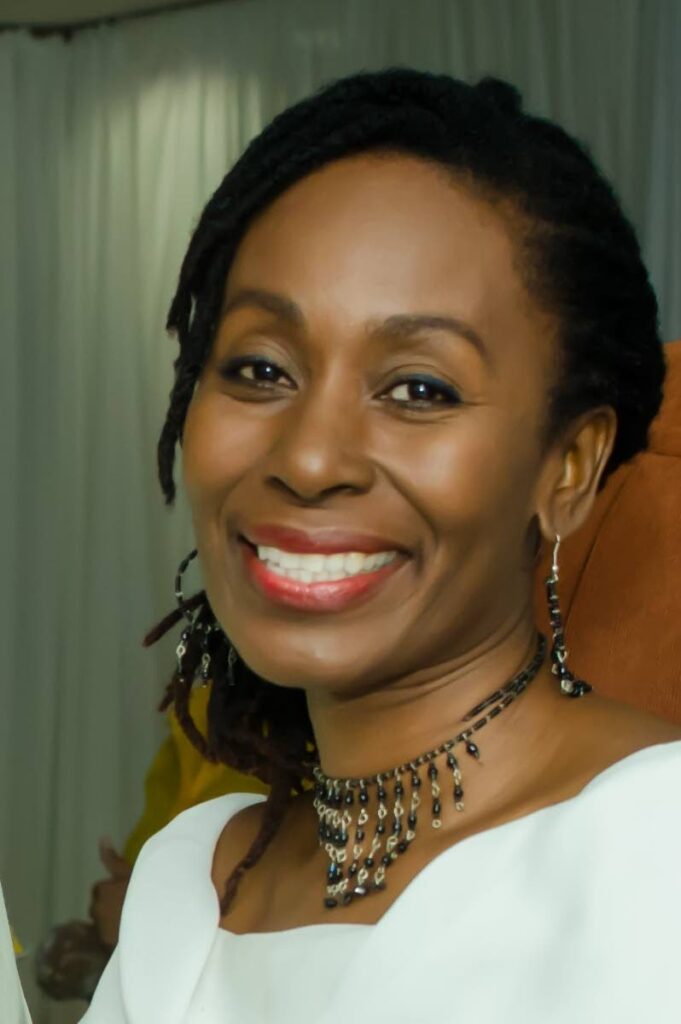Long walk to Yoruba Village

Culture Matters
DARA E HEALY
Mo juba Olodumare
Mo juba gbogbo Orisa
Mo juba gbogbo egun
nbelese Olodumare
I salute God
I salute all Orisas
I salute all ancestors
who kneel before God
THE SPIRITUAL traditions of the Yoruba stretch thousands of years into history, before enslavement, conversion or the encirclement of foreign entities seeking to profit from black bodies. In TT, Yoruba peoples mingled with Ibo, Koromante, Masai, Asante and others; descendants of royalty, tradespeople, artists or griots, keepers of the oral traditions. Yoruba Village in Port of Spain is a permanent marker of their presence, though the space is seldom cleaned and is often occupied by the homeless.
In many ways African culture reverberates outwards and upwards from this space; into the hills of Laventille, through the narrow streets of Belmont, floating alongside the East Dry River, which also consistently displays signs of neglect.
We continue to forget the origins of our pan and its link to Ogun, Orisa deity of iron and steel, to our peril. We continue to deny that the people of Laventille and East Port of Spain created music from discarded materials. Thus, in spite of the pan being broadcast on a global platform, millions around the world still do not know the most important word in the story of pan – Laventille.
In spite of the lives sacrificed to preserve African culture, global eyes and hearts are no closer to understanding the pain poured into the limestone that paved the first roads of our capital city, the determination beaten into the banned drums, the screams of Christopher Columbus’s victims, or the blood that dripped from Picton’s cruel whips.
The ancestors encircling Yoruba Village look on. This Emancipation is forged in a different time and space. We understand now that Britian underdeveloped the Caribbean, that our education system still fulfils colonial dreams and that the children of Africa continued to be denied the true reward of freedom, self-determination.
When, in the 1990s, Rudder asked “Who letting the cocaine pass?” we already knew. Open secrets and a culture of silence encouraged dysfunction among the many, to satisfy the profits of a few. It is the same now with guns. Gangs have increased and daily, guns shoot off in some community in this little 1.4 million place – no community is safe.
On the news the faces of young African men – the children that Sandra begged us to protect – look out at us from police most-wanted lists.
Yet we pay little obeisance to the ancestors, we pretend not to understand what they need.
On Emancipation morning at 4 am, a small group of us will walk in reverence to Yoruba Village. Our journey will begin at All Stars panyard, a significant point of cultural resistance. In the early morning air we will sing the ancient chants that today our schoolchildren are not allowed to hear.
We will pour libations and offer sacred materials as we ask the ancestors to forgive, but also to empower us. And we will call the names of the elders who laid the foundation for our stickfight, lavways and the traditional masquerade, the ones so often disrespected by those charged with protection of our traditions.
We will remember Pan Africanists like Padmore, Sylvester-Williams and Ture, cherished internationally for their impact on the African diaspora, yet largely forgotten in the place of their birth.
We will call on the names of the many cultural warriors who preserved the congo-bele, avalou, bongo and so much more, hiding these art forms in their skirts, bosoms and the goatskin of the drum, masking their rituals inside the practices of the enslavers.
My tears are for the pain I feel for the people of Laventille, for myself. For the sense of loss I feel when I walk in Leon Street now. So little has changed from when I held my grandmother’s hand and walked to the church to listen to the brilliant Fr Harvey. Certainly, I have changed. I understand now the key to my self-determination is a belief system embodied by Yoruba Village.
Through the work of the Emancipation Support Committee, NJAC and other organisations, thousands will walk on Monday in celebration of freedom. But it is not enough. My tears are for the reparations meetings that never happen, ineffective investigations into centuries of injustice and my own inability to do more.
Laventille, pan and Yoruba Village. Forged in the fires of cultural resistance, holding firm to the conviction that freedom will come. Mo juba gbogbo Orisa, true freedom will come.
Dara E Healy is a performance artist, communications specialist and founder of the NGO, the Indigenous Creative Arts Network – ICAN


Comments
"Long walk to Yoruba Village"